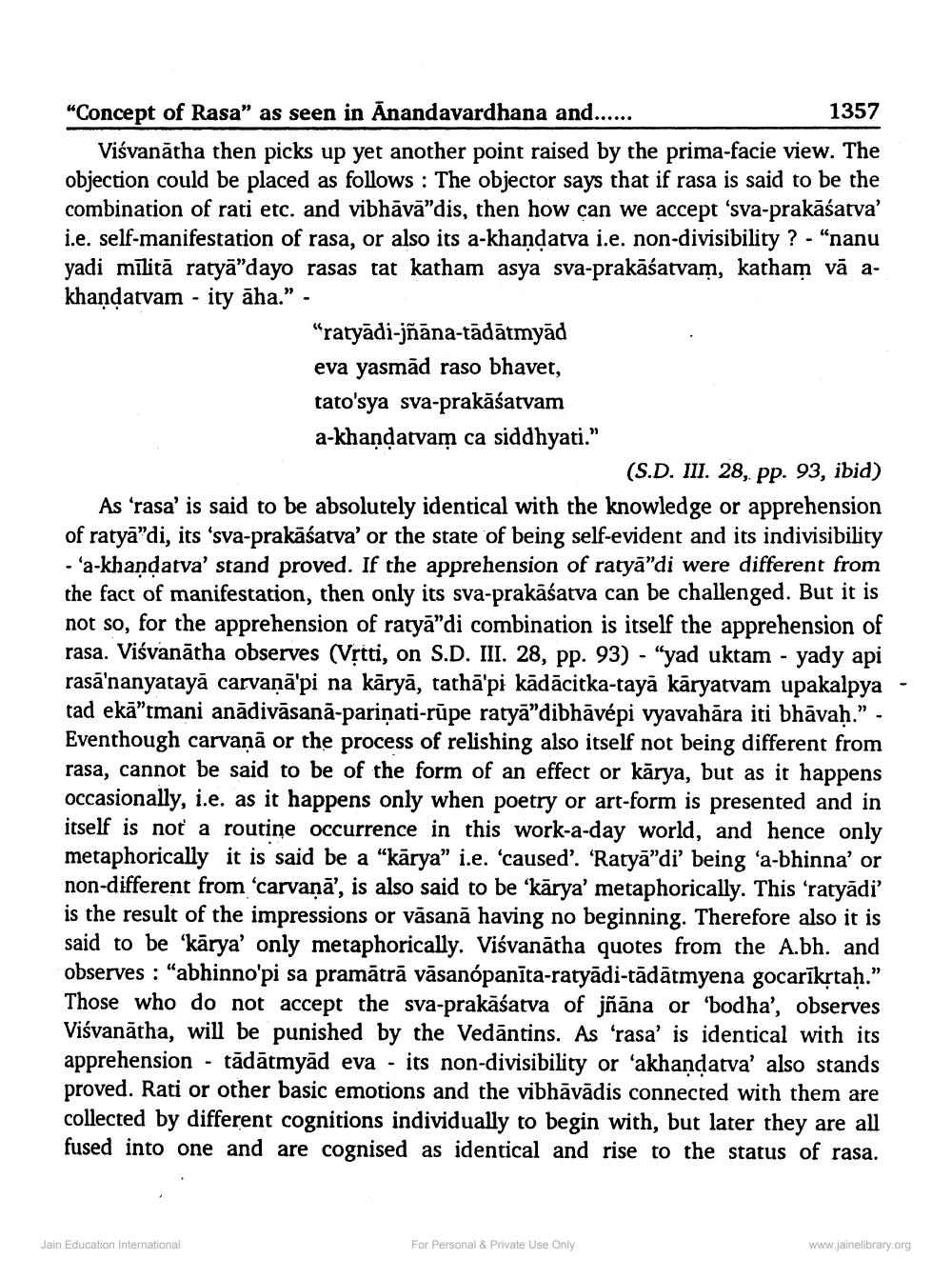________________
"Concept of Rasa” as seen in Anandavardhana and......
1357 Viśvanātha then picks up yet another point raised by the prima-facie view. The objection could be placed as follows : The objector says that if rasa is said to be the combination of rati etc. and vibhāvā"dis, then how can we accept 'sva-prakāśarva' i.e. self-manifestation of rasa, or also its a-khandatva i.e. non-divisibility ? - "nanu yadi mīlitā ratyā”dayo rasas tat katham asya sva-prakāśatvam, katham vā akhandatvam - ity āha." .
"raryādi-jñāna-tādātmyād eva yasmād raso bhavet, tato'sya sva-prakāśatvam a-khandarvam ca siddhyati.”
(S.D. III. 28, pp. 93, ibid) As 'rasa' is said to be absolutely identical with the knowledge or apprehension of ratya"di, its 'sva-prakāśarva' or the state of being self-evident and its indivisibility -'a-khandatva' stand proved. If the apprehension of ratya"di were different from the fact of manifestation, then only its sva-prakāśatva can be challenged. But it is not so, for the apprehension of ratyā"di combination is itself the apprehension of rasa. Viśvanātha observes (Vịtti, on S.D. III. 28, pp. 93) - "yad uktam - yady api rasa'nanyatayā carvanā'pi na kāryā, tathā'pi kādācitka-tayā kāryatvam upakalpya - tad ekā”tmani anādivāsanā-pariņati-rūpe ratyā”dibhāvépi vyavahāra iti bhāvah." . Eventhough carvaņā or the process of relishing also itself not being different from rasa, cannot be said to be of the form of an effect or kārya, but as it happens occasionally, i.e. as it happens only when poetry or art-form is presented and in itself is not a routine occurrence in this work-a-day world, and hence only metaphorically it is said be a "kārya” i.e. 'caused'. 'Ratyā”di' being 'a-bhinna' or non-different from 'carvanā', is also said to be 'kārya' metaphorically. This 'ratyādi' is the result of the impressions or vāsanā having no beginning. Therefore also it is said to be 'kārya' only metaphorically. Viśvanātha quotes from the A.bh. and observes : “abhinno'pi sa pramātrā vāsanópanīta-ratyādi-tādātmyena gocarīkrtaḥ.” Those who do not accept the sva-prakāśatva of jñāna or 'bodha', observes Visvanātha, will be punished by the Vedāntins. As 'rasa' is identical with its apprehension - tādātmyād eva - its non-divisibility or 'akhandatva' also stands proved. Rati or other basic emotions and the vibhāvādis connected with them are collected by different cognitions individually to begin with, but later they are all fused into one and are cognised as identical and rise to the status of rasa
Jain Education International
For Personal & Private Use Only
www.jainelibrary.org




